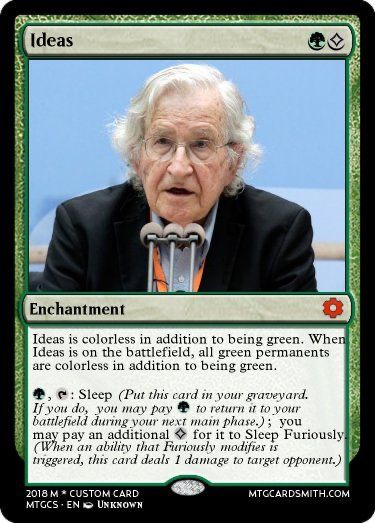Húnza
'snow leopard'
ttá, obl. ttáa
Compare Tibetan སྟག /stag/ 'tiger'
LanGo Institute
@langoinstitute.bsky.social
Tools for Language Learners | Dallas TX #English #Korean #Spanish #Chinese #German #Portuguese #Japanese #French #Italian
@langoinstitute.bsky.social
Tools for Language Learners | Dallas TX #English #Korean #Spanish #Chinese #German #Portuguese #Japanese #French #Italian
Húnza
'snow leopard'
ttá, obl. ttáa
Compare Tibetan སྟག /stag/ 'tiger'
'cry / weep'
inf. héras < *haQr-ahs
ptcp. nuhér < *n(u)-haQr
neg. oó(w)aras < *a(u)-haQr-ahs
'say'
inf. sénas < *saQn-ahs
ptcp. nusé(n) < *n(u)-saQn
neg. oósanas < *a(u)-saQn-ahs
móyanas bo
3F-sleep-INF be-3F
mu-Qyan-ahs *p-[m]uQ
móyanas apó
[ 3F-sleep-INF ] NEG-be-3F
mu-Qyan-ahs a-p-[m]uQ
amóyanas bo
[ NEG-3F-sleep-INF ] be-3F
#Burushaski
'she has to/should sleep'
móyanas bo
'she isn't going to sleep at all'
móyanas apó
'bc she isn't tired, she won't sleep'
amóyanas bo
or the [w] might be merely epenthetic, i.e. an original
*a-u-har- (with Null prefix u-)
underwent regular loss of intervocalic /h/ to yield
*aú-ar- > oóar-
Original root *haQr-
gave tonic hér- and atonic -[w]ar-
analogous to 'say' *saQn-
which gave sén- and -san-
#Burushaski
Húnza dialect
'weep, cry'
hér- : ptcp. nuhér
: neg. oówar-
the onset w- in the negative may derive from a labializing lenition process acting on root-initial /h/ (compare 'wash' with -wáaltt- alongside báaltt-, from root *pa[h]altt-)
...
ʕimmānū-ʔēl
Mācrōn
Je le déclare,
vous êtes des dieux,
vous êtes tous des fils du Très-Haut
("tous" here as [tus], I reckon, not *tu)
elsewhere ψ82
30.10.2025 03:16 — 👍 0 🔁 0 💬 0 📌 0ψ81.6
ego dixi:
dii estis,
et filii excelsi omnes
CORRECTION
There’s one root with initial cr:
a-crú ‘come (neg.)’
whose aorist is
ddumóomo, ddíimi etc.
*Th-
*T-
*D-
#Burushaski
so far no verb roots found with initial
l-
r-
rw-
z-
cr- crh-
cy- (unless varying with cyh-)
c- (unless varying with ch-)
one with initial j-
only a few have s-

Noam Chomsky: “colorless green ideas sleep furiously” is a sentence that is grammatically correct but semantically nonsensical
Me, #MtG player:

The past tense of ‘to go’ is ‘went’, but this form used to belong to the verb ‘to wend’.
We call such verbs suppletive.
Surprisingly, ‘to bring’ is suppletive too: ‘brought’ comes from a different verb.
My new graphic tells you all about their past.
In certain varieties of English, ... 1/
9. missed this one! here's more contrived tongue twisters idk what else i have:
bʕūd bʕīd bʕūd bʕīd bʕūd bʕīd bʕūd bʕīd bʕūd
"i will return on a holiday with a faraway oud; i again repeat: with a faraway oud i will return"
bʕīd bʕīd bʕīd
"i repeat & repeat & repeat"/"i repeat on a faraway holiday"
‘cucumber’
Hunza-Nager Burushaski láaỵ
Balti laḍu, lalu
Gilgit Shina láa
Srinagar Kashmiri ləər
Anantnag Kashmiri ləəḍ
1 "-pi," 2 "bi-"
compare modern /bi, api/
pres. copula, nonhuman subj.
Some assumptions I'm working with:
- mid vowels are derived from high vowels (as noted, here both are adjacent to <h>)
- initial stops are voiced; voiceless ones barred from that pos'n
- zero initials reflect word boundaries
- at this stage vowel sequences were not tolerated (so <-i> = /ỵ/)
χo napa[ŋ]-ri ltilpi [1
bu biti latitasiŋ
un up χaŋ-paŋ-ril
uppisu baŋ-ri
žeχalpaỵmaćaŋ [5
kuỵ daŋ-ratti
3 "up" and 4 "uppisu" may be related;
compare 3 "-paŋ" with 4 "baŋ"
Clusters -lp- and -lt- (the latter still common in Bsk) may have <l> for a lateral fricative dev. from *s
CORRECTION
line 2 replace "ng" with [ŋ]
I've moved the /l/ of <ril> to the following word; -lt- is a common sequence in native #Burushaski lexemes
03.09.2025 04:44 — 👍 0 🔁 0 💬 0 📌 0/napan/ or /napang/ looks like a converb (participle);
/ku-/ of /kuỵ/ recalls the 'thou' 2s prefix gu- (basic form ku-)
3rd attempt.
Mid vowels only adjacent to h (uvular). Common final ŋ (> -mu(-c)) maybe a noun ending; clitics begin w/ r
χo napa[ŋ]-ri ltilpi
bu biti latitasing
un up χaŋ-paŋ-ril
uppisu baŋ-ri
žeχalpaỵmaćaŋ
kuỵ daŋ-ratti
Are you in the Seattle area? Come see me at Third Place Books in Ravenna on Sept 16, 7pm. I'll be talking about and reading from my new book, followed by Q&A and a book-signing session. Would love to see you there.
Check out the link for more info, to RSVP, and to pre-order a book for signing.
that's my understanding
02.09.2025 15:00 — 👍 1 🔁 0 💬 0 📌 0
Yes, Mr Bluesky, cdj2jygzzk9o is the way they say this in Polish
02.09.2025 06:21 — 👍 90 🔁 15 💬 6 📌 1Brilliant.
"Picture of a scene" is imo the best way to interpret characters like
化 (2 human bodies in diff directions: change)
尾 (hair at the posterior: tail)
漁 (fish outside water: fishing)
neither part is a determiner or classifier
2nd attempt, using possible vowel harmony to group syllables into words:
xo [= /qhu/]
napan=ri( )ltilpi
bu biti latitasiŋ
un up
haŋ-paŋ=ril
uppisu
baŋ=riže [= /-şi/]
halpaỵ maćaŋkuỵ
daŋ-ratti
Taking =ri, =ril, =riže as possible enclitics
in the sequences -pai-, -kui- (the only apparent diphthongs or vowel sequences), the /i/ may represent /ỵ/ or its etymon
02.09.2025 03:42 — 👍 1 🔁 0 💬 0 📌 0